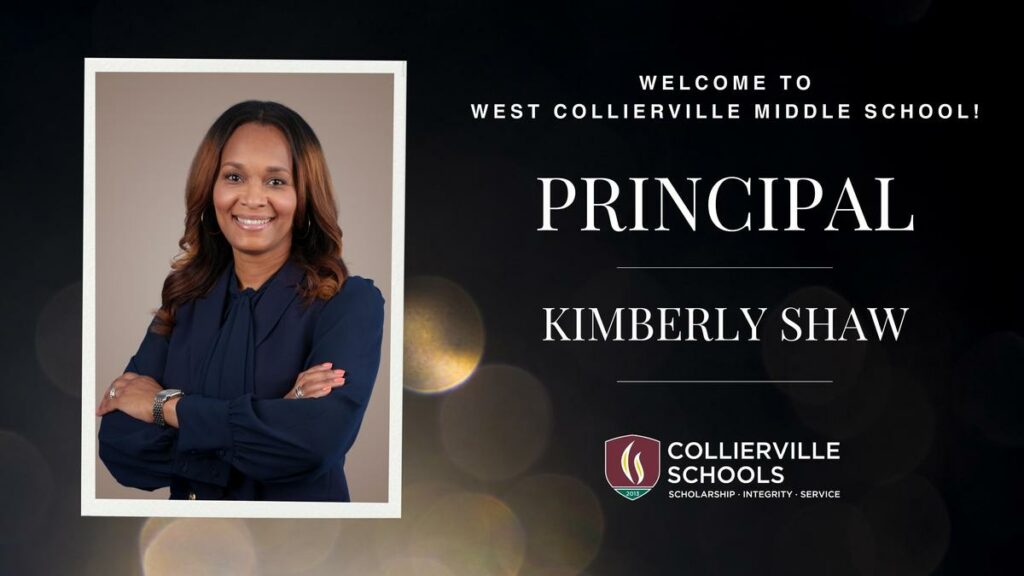Editor’s note: This is the second in a series of articles from the April 5 debate between four of the five Shelby County mayoral candidates. They spoke on key issues at a Ducks Unlimited gathering in Memphis. Local chambers of commerce provided the questions.
Shelby County’s mayoral candidates include Sen. Lee Harris and former Commissioner Sidney Chism, both of Memphis, in the Democratic primary and Trustee David Lenoir of Collierville, County Commissioner Terry Roland of Millington and Juvenile Court Clerk Joy Touliatos of Arlington in the Republican primary. All but Chism participated in the April 5 debate produced by the Shelby County Chamber Alliance, which represents all six suburban communities.
The candidates were introduced by Harold W. Byrd, a founder, vice chairman and president for the Bank of Bartlett. The debate moderator was Richard Ransom, news anchor for WREG-TV Channel 3.
See last week’s issue for the candidates’ comments on fair representation for taxation and on job training and opportunities. See next week’s issue for the conclusion of the debate.
QUESTION 3: “There’s a lot of concern, especially among the Chamber members, that maybe the Memphis area has not thought of itself regionally enough, and the Amazon HQ2 project is an example of where that has not been the case – where the county’s municipalities and chambers really did work together as a team. And a participant saw this exercise as a model for future projects down the road. Given that, we are in a fierce competition both locally and regionally. How do you see the county’s various entities working together to attract major investment in jobs?”
Touliatos: “I think we need to be proactive. I don’t think we need to wait and find out that somebody’s willing to move or is waiting to move. We’ve gotta be proactive. We’ve gotta be out there, talking to the businesses and getting them interested in Shelby County. And if we do that, we’ll get more businesses interested. We’ve all got to work on that together. It just can’t be one person. Gotta meet with the business community and see what interests are out there and what’s needed. And we also need to bring businesses into Shelby County where we can provide the workforce, which is what we just talked about. We have to be prepared to take in these businesses. We also, the businesses that come in, we’ve gotta know what job opportunities are gonna be, and also are they gonna have benefits for our people. Because that is so important to the citizens. It’s not just the job itself but it’s got to have good pay, and it’s got to have benefits. So we need to be a little bit more careful and talk to the businesses and find out more about it and be proactive and bring the businesses that we’re looking for here in Shelby County.”
Lenoir: “Well, first thing we have to do is we’ve got to right-size government. I mean, right now, the number two issue in addition to lack of skilled workforce is high property taxes in terms of economic development. So many of the things that we’ve done the last eight years in terms of reducing the debt and increasing the county’s savings account, we’ve been able to do that at the same time in the trustee’s office we’ve reduced our position count nearly 25 percent in the trustee’s office in the last eight years.
“So we have to right-size government; we have to have it make sense for people to live here, people to work here, and people to grow here, as far as their businesses. For 20 years, I worked in the private sector, helping many small businesses and mid-sized businesses recruit, retain and reward employees. So the first thing we need to do is we need to go out to our existing businesses, many of you that are in the room, and say ‘Thank you. Thank you for being here. Thank you for investing in Shelby County.’ I call it shareholder value, based on my accounting background and my private sector experience. We need to give you a dividend. We need to give you a tax reduction – a real tax reduction so that it makes it more affordable for you to live here, work here, and play here.
“In terms of connectivity of the suburban chambers, I’ve said this to many of you and others, I look forward – once we right-size government – to jumping in a plane, train or automobile and going and selling the heck out of Shelby County. We have tremendous assets here: Over 200 development projects, $10 billion, and I’m gonna go sell Shelby County.”
Roland: “As you know, probably there’s 110 people a day moving into Nashville. This last week, there was a story in the Commercial Appeal about our population going down again. Well, all this is based on regionalism. What they’ve done, our taxes are so high that people are leaving in droves. We haven’t given them much incentive to stay here. One of the things that we did this year, and I’m glad that we were able, you know, the trustee and the mayor, they work with the state to get a certified rate. And they brought it down from $4.37 to $4.13. Actually, we fought to get the property tax down two cents more, which is $4.11. And think about this: We found out that we over-estimated appraisals that are coming. So we are going to have about $25 million, and I see my good friend George out there, we are gonna have the chance to give that back to the people here in the next month or two to go down on your tax rate again. So maybe that will get people in Shelby County.”
Harris: “I think there are some major differences between yours truly and everybody else up here with respect to this issue. So I do believe in tax cuts like the kind that Terry Roland just talked about, a tax cut that the County Commission put out there in the last budget cycle, where you cut taxes on everyone. I am not a big believer in the other kinds of programs that you just heard about, necessarily. Now, on a case-by-case basis, maybe some of those would work out.
“But, in general, the way you attract people to your community – and that’s our major problem in this city, right, in this county – is that not enough people are moving in. You’ve got to attract people by improving your quality of life. Right? My wife is from New Orleans, and the way you attract folks to New Orleans, and the people who have young families and people who’ve just graduated college, is you invest in education, and you make sure that there’s some high-quality schools that are options for those families when they want to send their kids to school. That’s how you get people to move to your community.
“You invest in transit. That’s how you get people to move to your community. Amazon is not going anywhere near us because our transit system situation is horrible. And that is another way, by the way, to empower people to get jobs. Because they can get the job if we invest in transit. And they can keep the job because they can go back if they have reliable transit options. So those are the kinds of things we should talk about. So there is some difference on this score between yours truly and everybody else up here.”
QUESTION 4: “As to sewage, and there is lots of concerns, especially in this group of areas, because the Memphis mayor and his administration have decided they will no longer supply sewer service to customers outside of the city limits. And the burden will fall on the municipalities and the county, and there are already many stories that have been done about capacity of the sewage system. And we know that especially along the Wolfchase area, along I-40, it’s about 97-98 percent, and that’s already affecting some of the municipalities. So what actions will you take as mayor to ensure that suburban Shelby County possesses the infrastructure it needs to grow and not be dependent on the City of Memphis and MLGW?”
Lenoir: “Well, first of all, that was a poor-played card by [Memphis] Mayor Strickland in terms of the announcement of the sewers. Unfortunately, the EPA had already notified the City of Memphis of the sewage capacity issue, and then to announce it the way he did, quite honestly, all it did was inspire the Fayette County chambers and the surrounding counties to welcome folks across the border. Because the perception was, when it was announced, that no other development would be occurring outside the City of Memphis. But after the dust settled, we realized that some of the cities who have their own sewer systems are gonna be okay.
“But unfortunately, unincorporated Shelby was kind of, uh, over a barrel, if you will, in terms of development. There’s about 50 developments that are in limbo right now, where developers have broken ground, banks have lent money, on the expectation of developing those properties. And so again, in terms of advocating on behalf of the county, I would advocate on behalf that we need to look at our own sewer system. The fact that we’re trapped and we’re backed into a corner, the municipalities need to sell the fact that they have municipal schools and I’m going to remind my colleague when the state looked at the top ACT scores in the state, the top two ACT scores in the state were in Germantown and Collierville. So there is great education here in Shelby County, we need more of it, and friendly competition –” [The moderator interrupted at this point because Lenoir had reached his time limit.]
Roland: “First of all, I have been running these sewers on a daily basis, believe it or not. I have been going down, and a gentleman has been working with me, has worked with the City of Memphis for 40 years, and I can tell you, no pun intended, folks, there’s more than just, uh, ‘dirt’ when it comes to sewer systems.
“First of all, the City of Memphis is having to pay $1.5 million in fines every year. The reason why it’s at capacity is because they’ve never tested the sewer. I can show you plans right now that’s signed off by the engineers and the inspectors and they have n– they don’t even have manhole covers. They don’t have manholes. I can show you right now manhole covers without the lids on where groundwater’s running in ’em. And you call them and you go up to the City of Memphis and say, ‘Look, I want the paper where you tested this sewer,” well they can’t come up with that paper. But them the next day, [they] say, ‘Come on, we’ve got a copy of it,’ and then they give me a copy of the paper and it’s signed by the guy that’s helping me, and it ain’t his signature. Okay?
“But folks, I’m telling you I’m well versed on this. There’s nobody in this county that’s on this sewer issue no harder than I am, and I’m not gonna let ’em put a substandard sewer on the people of Shelby County, I promise you that.”
Harris: “So I think all about the sewer and infrastructure is a local concern, and I think it’s something the Shelby County government can work on; it’s something that we can get done. I think the question becomes, it depends on the place. It’s really a function of density, right? You have to have a community that wants to be dense before you invest in that level of infrastructure. A lot of communities don’t want to be that dense, and they like the environment the way it is and don’t want further density. And so to that extent you’ve gotta be very careful. So it’s a case-by-case approach depending on what kind of community you face.
“What I will say is that I believe, based on my history of serving on the Memphis City Council and having worked with everybody in City Hall, that I am in a position to collaborate and try to get something done for the county on this issue. I mean, I know Jim Strickland well, I know everybody on the City Council very well; I served with, I think, most of them. And so I think that IF something is going to be done with the city, it’s probably better to have somebody who takes a more collaborative approach and not an adversarial approach to the City of Memphis. And I think I’m in a position to take a collaborative approach to the city.”
Touliatos: “The way we found out about the sewer problem was just unacceptable. And that’s lack of communication again. I mean, that’s what we’re lacking is communication – between the two governments of city and the county, and it trickles out to the municipalities. So we need to find a way to work together.
“I mean, we need to solve this sewer problem. The only way to do that is to collaborate. And we need to find a way to solve this, because it’s only gonna get worse. And whether or not we come up with our own sewer system process or we work with the City of Memphis and see if we can’t resolve it, but something’s gotta be done. Because if we don’t work together and solve this issue, then we’re not gonna be able to expand and bring in new businesses because our infrastructure is at a standstill. And that’s just unacceptable.”
QUESTION 5: “So our next question has to do with PILOTS. We mentioned that that would probably be coming up. A lot of controversy over how that PILOT program is handled as it relates to governmental bodies and the EDGE board, and also whether there are more options out there – should we push for the state government to help us out a little bit more than they currently do. And on the other side, boosters of PILOTs will tell you it’s the only option out there, it’s the only tool in their toolbox, they don’t have much of a choice.”
[Editor’s note: A payment in lieu of taxes, also known as a PILOT or PILT, is a payment made to compensate a government for some or all of the property tax revenue lost because of tax-exempt ownership or use of real property. For more information, see https://www.doi.gov/pilt/.
EDGE is the Economic Development Growth Engine for Memphis and Shelby County, providing and coordinating public resources to drive economic development. Learn more at growth-engine.org.]
Roland: “First of all, I’m not a fan of PILOTs at all. But I will say this. There are some good PILOTs. When you look at FedEx, International Paper, ServiceMaster, there’s some good ones. But the way these other cities are beating us is with TIFs. We’ve done five TIFs at the County Commission in the last two years and put 6,000 people to work. I think that’s the way that we rebuild our communities, our inner city; it works. It doesn’t matter how many you got going at the same time because nobody loses in a TIF. The taxpayer doesn’t lose, the city doesn’t lose, the county doesn’t lose. And at the end of the TIF, you get a windfall. Where a PILOT, you’re just plain abating taxes, okay? To me, it sets up corporate welfare. And I think EDGE, the engine that we created, I think it’s reached a point now to we need to restructure EDGE. Right now, you’ve got a board that have no teeth and can’t do anything with the president. I think the board should be empowered, that way they can pick the president, and whoever’s in charge can make sure that they do what they’re supposed to do, and then the County Commission and the City Council have oversight of all that. And I think that’s how we rebuild our communities.”
[Editor’s note: Tax increment financing, or TIF, subsidizes redevelopment, infrastructures and other community-improvement projects. Municipalities typically use TIFs to divert future property tax revenue increases from a defined area or district toward an economic development project or public improvement project in the community. TIF subsidies are not appropriated directly from a city’s budget, but the city incurs loss through foregone tax revenue. See a lengthier explanation with examples at bit.ly/TIF-explained.]
Harris: “I realize I’m in a room with a bunch of folks that are real estate professionals, but I’ve gotta, you know, say the same message here as I take anywhere around the county. And I think that PILOTs probably are not the best way for us to encourage growth in our community.
“I have a different understanding of how the county works. I don’t think Jim Strickland creates any jobs. I don’t think [current Shelby County Mayor] Mark Luttrell creates any jobs. I don’t think [former Shelby County and Memphis Mayor] A.C. Wharton creates any jobs. I think entrepreneurs create jobs. I think private business owners create jobs. I don’t think Reid Dulberger [president of EDGE], who I like and have worked with, I don’t think he creates any jobs. He works for the City of Memphis. Private entrepreneurs create jobs, and I think that we are going down the wrong path when we confuse everybody and put in the laps of politicians as if we created all those jobs at Amazon or here or there. That’s not really how it works.
“And I’m not against econ development as it’s currently described wholesale. No, there are many economic development projects that I am supportive of. And the key ingredient for me is, ‘Is there a real public interest in the project?’ Crosstown, for example. I’m supportive of that. There is a serious public interest in the project. How do I know? Because I could go into the north Memphis community, knock on doors, and everybody would be supportive of it. Just a hotel – I’m supportive of it. If we could get a hotel to come downtown, I’d be supportive of it. Tourism, where we have a comparative advantage, I’m supportive of it.” [The moderator interrupted at this point because Harris had reached his time limit.]
Touliatos: “With PILOTs, it’s gotta be a case-by-case basis. I think we need to scrutinize them a little bit more. We need to know what the companies are offering us – make sure that we have enough jobs, to make sure what the wage will be, and to make sure there’s benefits involved. And that way, when we bring in a PILOT we know more about what’s gonna be offered. But we also need to make sure that we keep track of what’s going on with the PILOTs. And we need to be able to know that they’re providing what they said they would in the beginning. And a lot of times I think maybe that falls from the wayside. And so we need to keep up, we need to scrutinize more of it and take it on a case-by-case basis. Because we’ve gotta grow somehow. And PILOTs sometimes are good. But it just depends. It should be on a case-by-case basis.”
Lenoir: “There’s no doubt we live and work in a competitive environment. The State of Mississippi is to our south, the State of Arkansas is to our west, and in terms of recruiting great businesses and great jobs to our community, we need economic incentives. We need tools in our tool chest. There’s no doubt about it. Whether it’s PILOTs or TIFs, we need those types of incentives. There needs to be accountability when those incentives, where, when it comes to job recruitment and job placement, there needs to be follow-up with those incentives. There needs to be a level of accountability. When XYZ Company comes to town and says, ‘We’re gonna spend $10 million in capital investment, we’re gonna bring in 150 jobs,’ we as elected officials love the ribbon cuttings, where we can come out and cut the ribbon for that new investor. But where are they two years from now? Where are they three years from now, in terms of the accountability of the economic incentives? So we need economic incentives, but the reality is, is that we work and live in a competitive environment, but with those incentives we need accountability. With those incentives when that company comes in and says, ‘We’re gonna bring in 150 jobs,’ we need to ensure that they bring in the 150 jobs and make an investment in our community.”





